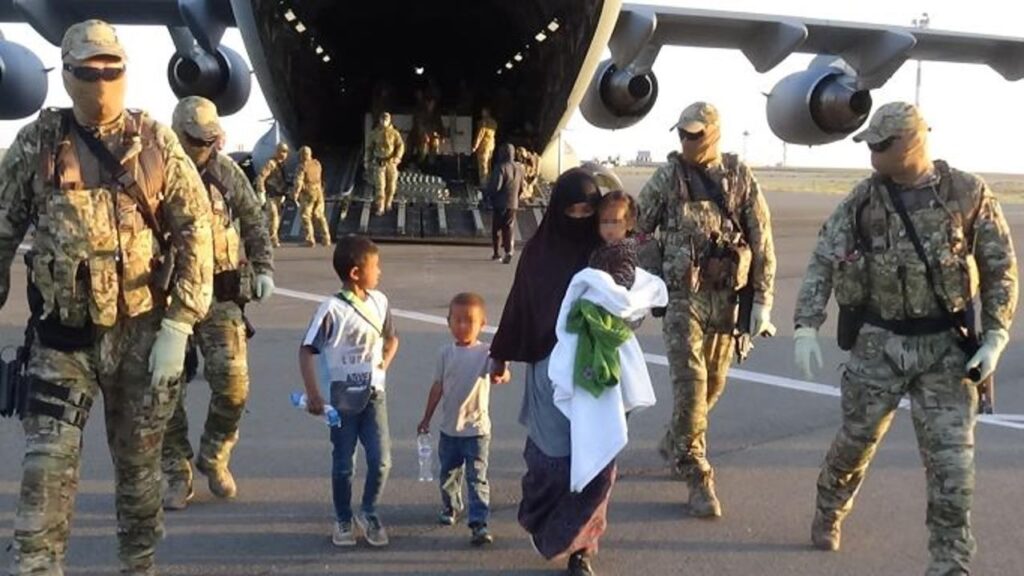Kazakhstan Still Repatriating Its Citizens From War Zones
Kazakhstan is still repatriating its citizens from war zones, 24KZ reports. Since 2019, more than 750 Kazakhs have been successfully repatriated to the republic as part of a humanitarian operation. Similar efforts are underway in other Central Asian countries. For example, Uzbek authorities have evacuated more than 500 citizens from conflict zones, compared to 511 in Kyrgyzstan and 381 in Tajikistan. These figures were presented in Tashkent at the first meeting of the Regional Expert Council on Rehabilitation and Reintegration in Central Asia. "The results of our rehabilitation programs are very high. Repatriated women and children do not pose a danger to society and the state. All orphaned children have been taken under the guardianship of their grandparents. Now they are studying at school," psychologist Gulnaz Razdykova said. However, the UN's under-secretary-general Vladimir Voronkov has commented: "Unfortunately, there are still a huge number of people still in camps and detention centers in northeastern Syria and Iraq. First, women and children. We estimate that this is about 55,000 to 60,000 people as of today. So, there is still a lot of work to be done to unload these camps and bring back those who deserve a normal life." Thanks to the active efforts of the Kazakhstani authorities, 180 women, more than 500 children and 37 men have already returned home. In addition, another 34 children left without parents have been successfully reunited with their grandparents. In 2018, Kazakhstan approved a state program to counter religious extremism and terrorism. The special operation to return Kazakh citizens from Syria and Iraq was called "Zhusan", which is Kazakh for wormwood, found on the country's steppe and which symbolizes home for many Kazakhs.

